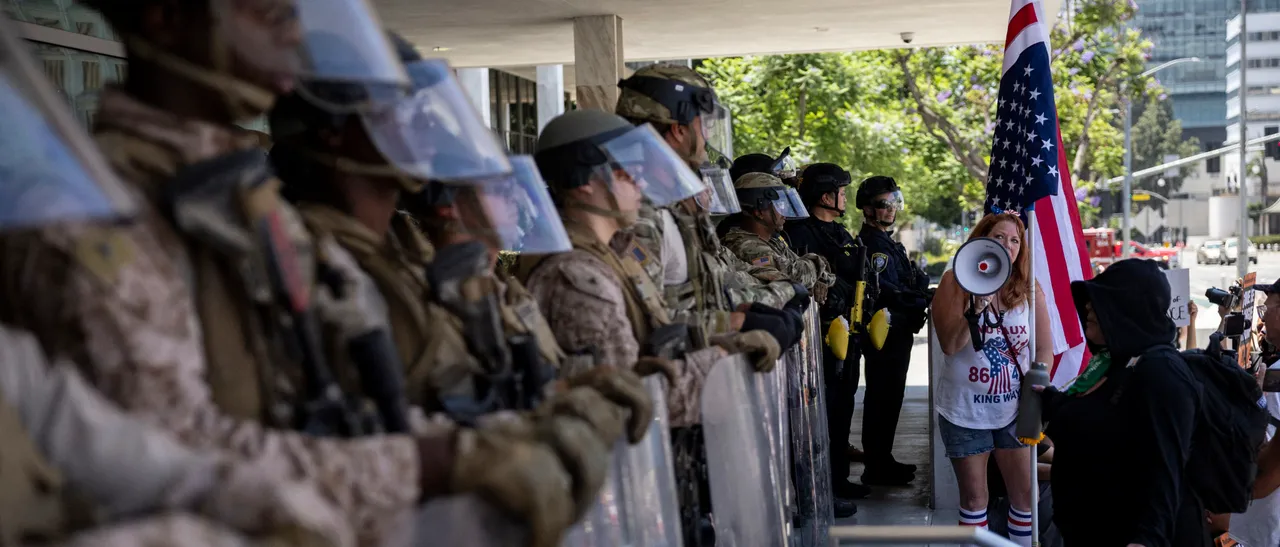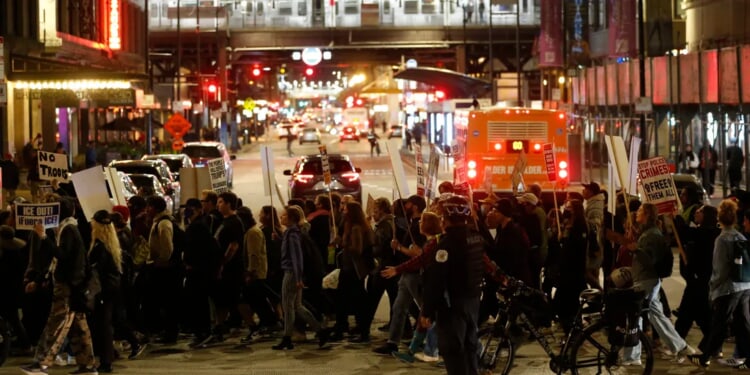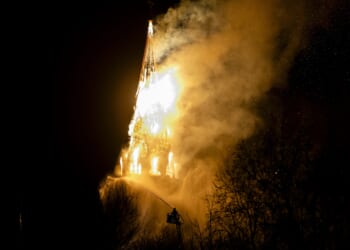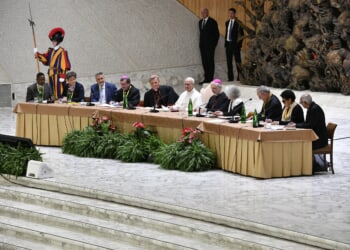President Donald Trump asked the Supreme Court on Friday to allow the deployment of the National Guard in Chicago.
The Seventh Circuit Court of Appeals declined to halt a lower court decision Thursday blocking Trump from sending troops to the area.
Letting the lower court’s order stand would “immediately increase the risk that federal personnel in Chicago may be seriously harmed by violent anti-ICE agitators,” Solicitor General John Sauer wrote in the administration’s application.
“[The ruling] deprives DHS officers of the protections that the President sought to give them from ongoing violence, prevents the Guard from ensuring the enforcement of federal law, and puts lives and property in danger,” Sauer wrote. “It also places the Seventh Circuit in the untenable position of controlling the military chain of command and judicially micromanaging the exercise of the President’s Commander-in-Chief powers, including the decision about which military forces the President can deploy.”

Demonstrators gather in front of the Federal building guarded by a mix of US marines and National guards during the “No Kings” protest following federal immigration operations, in Los Angeles, California on July 4, 2025. According to Immigration and Customs Enforcement (Photo by ETIENNE LAURENT/AFP via Getty Images)
Saur noted the Ninth Circuit blocked a lower court order in June preventing Trump from sending troops to Los Angeles. He also highlighted that lower courts are currently considering a similar injunction blocking Trump from “federalizing the Oregon National Guard to address violent opposition to federal immigration officers in Portland.”
“In recent weeks, federal officers in Chicago have been threatened and assaulted, attacked in a harrowing pre-planned ambush involving many assailants, rammed in their government vehicles, shot at with fireworks and other improvised weapons, injured and hospitalized, and threatened in person and online—including by a $10,000 bounty for the murder of a senior federal official,” he wrote.
The Seventh Circuit wrote Thursday that there is ” insufficient evidence that protest activity in Illinois has significantly impeded the ability of federal officers to execute
federal immigration laws.”
“Political opposition is not rebellion,” the panel wrote. “A protest does not become a rebellion merely because the protestors advocate for myriad legal or policy changes, are well organized, call for significant changes to the structure of the U.S. government, use civil disobedience as a form of protest, or exercise their Second Amendment right to carry firearms as the law currently allows.”
This is a breaking news story and will be updated.
All content created by the Daily Caller News Foundation, an independent and nonpartisan newswire service, is available without charge to any legitimate news publisher that can provide a large audience. All republished articles must include our logo, our reporter’s byline and their DCNF affiliation. For any questions about our guidelines or partnering with us, please contact licensing@dailycallernewsfoundation.org.











![Keith Ellison Caught Promising to Fight State Agencies for Somali Fraudsters [WATCH]](https://www.right2024.com/wp-content/uploads/2026/01/Keith-Ellison-Caught-Promising-to-Fight-State-Agencies-for-Somali-350x250.jpg)





